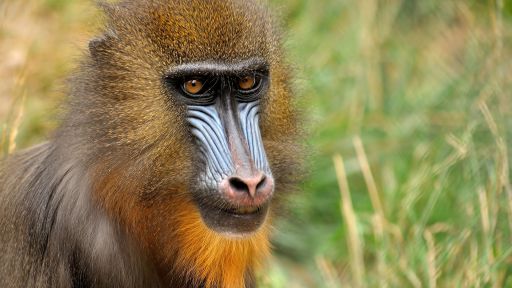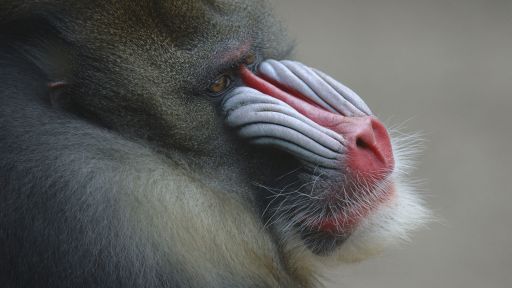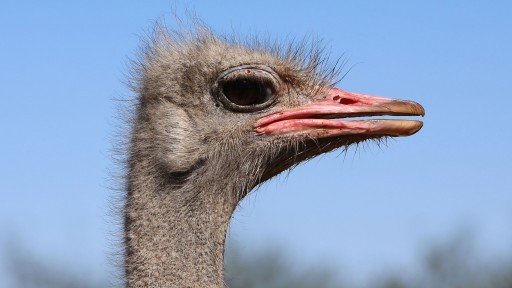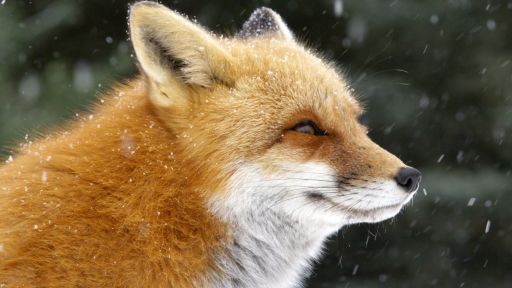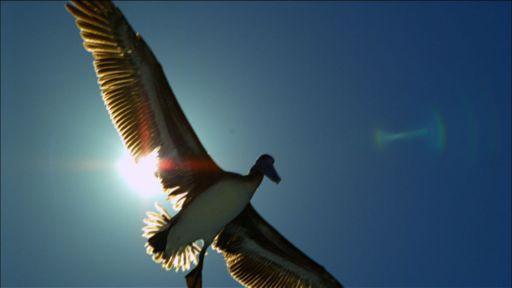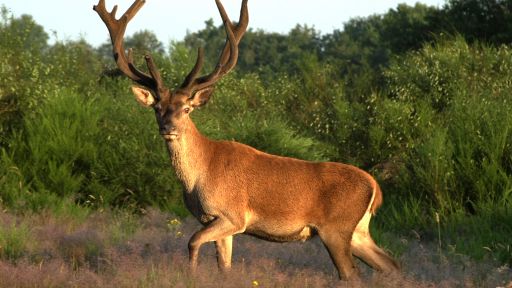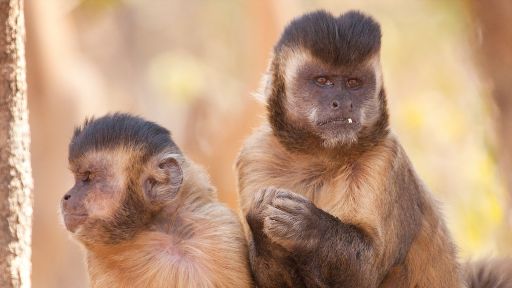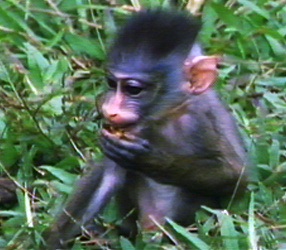 Gabon, a small country in West Africa, is one of the least developed places on the continent. It is still 80 percent rainforest, says mandrill scientist Dr. Alan Dixson. “It has the most wonderful flora and fauna; it’s one of the most amazing places I’ve ever been,” he says. As seen in Mask of the Mandrill, Gabon does have a wealth of wildlife. In fact, the gorilla was first discovered in Gabon. The country’s lush coastal lagoons, mountain ranges, and high plateaus straddle the equator, supporting one of the largest and most stable populations of forest elephants, as well as 20 species of primates. One of those primates, the sun-tailed monkey, was unknown before 1984. Gabon is home to innumerable snakes, butterflies, spiders, parrots, bats, and other species, many of which are seen in the film.
Gabon, a small country in West Africa, is one of the least developed places on the continent. It is still 80 percent rainforest, says mandrill scientist Dr. Alan Dixson. “It has the most wonderful flora and fauna; it’s one of the most amazing places I’ve ever been,” he says. As seen in Mask of the Mandrill, Gabon does have a wealth of wildlife. In fact, the gorilla was first discovered in Gabon. The country’s lush coastal lagoons, mountain ranges, and high plateaus straddle the equator, supporting one of the largest and most stable populations of forest elephants, as well as 20 species of primates. One of those primates, the sun-tailed monkey, was unknown before 1984. Gabon is home to innumerable snakes, butterflies, spiders, parrots, bats, and other species, many of which are seen in the film.
Gabon is also well-known as the long time home of Dr. Albert Schweitzer, the famous physician and humanitarian who in 1913 set up a hospital in Lambarene, Gabon, along the banks of the Ogowe River. Soon after arriving in Gabon, Dr. Schweitzer wrote to a friend: “I am gliding along in a canoe (carved out of a single tree trunk) on the mighty river, which is framed by the jungle, under a blazing sun. How marvelous this landscape is: water, jungle. Nothing, no one. My canoe, with the paddlers singing their ancient melodies, alone on the mighty river, lost in an unknown world. I spot a monkey perched on a huge liana. He sends you his best. Several hours ago I canoed past a half-dozen hippopotami.
Dr. Dixson worries that Gabon’s natural riches won’t last forever. The country is one of Africa’s major oil producers and also has stores of uranium, manganese, gold, and iron. In recent years, logging has increased in the rainforests. “Traditionally, they cut only trees that they could float down the river, but with the advent of a railway, the catchment area for logging has increased, because now they can drag the logs to the railway station,” says Dr. Dixson.
The mandrills, too, are endangered. They have long been hunted as a food source for local people, with little effect on their population size. Now, however, commercial hunters are culling many more animals, sending the meat “down the train line” to coastal hotels. Efforts to protect the wild resources are now starting, sponsored in part by organizations such as the World Wide Fund for Nature.

